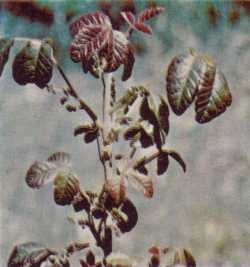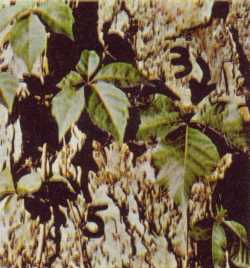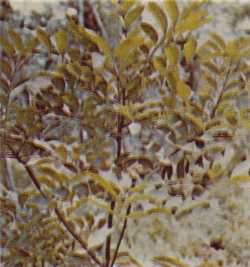Foods
Germs like dirt. Germs like food. Therefore, no matter how carefully you prepare your food, it will only be as clean as your cooking area. You should clean all the cooking gear after use and not leave food or refuse lying around. You can keep garbage in sacks or a small covered pail until it is emptied into the receptacles provided. If there are no trash cans, burn your refuse and bury it. But DO NOT let it accumulate. Take care of it after each meal.
You should keep food in sealed containers. Incidentally, coffee cans with plastic lids or metal cracker boxes are excellent to store such things as sugar, flour, or other such items. Small plastic bags with soft wire fasteners are also very good for this purpose. If you do these things, you will find you will have fewer unwelcome visitors in the form of flies, ants, and other insects.
Food that can spoil should be kept in an ice chest. A few small pieces of dry ice in the bottom of the chest can keep your ice from melting. Such things as potato salad, chicken salad, egg salad, or tuna fish spoil very easily and can cause SEVERE FOOD POISONING! You should store these in shallow containers, refrigerate, and use them in a matter of a few hours. Throw the unused portion away. Don't let illness, due to careless food handling, spoil your outing.
Another possible source of trouble around the kitchen area could be the use of old refrigerator shelves as cooking grills. Some of these shelves have been plated with cadmium, a material that prevents rust and keeps them shiny. When these are heated, fumes of cadmium oxide are given off which are toxic and dangerous when inhaled.
Cleanliness and Sanitation
God gave ancient Israel rules pertaining to health and sanitation. These primarily stressed cleanliness and were designed to protect Israel from disease. Such rules were especially needed at that time because the nation was on the move. The conditions of crowded living and roving camps produced all the factors needed to cause a widespread, fast-moving epidemic that could have wiped out the whole Israelite nation. That is one reason why God emphasized that if He found uncleanliness in the camp He would withdraw His protective presence from it (Deut. 23:14).
Those very principles are still fundamental concepts of public health and military preventive medicine. Today's crowded conditions and the constant movement of people in their living and recreation makes this same instruction as applicable now as it was then. Sanitation is a form of cleanliness that has to do with not only the physical cleanliness of your picnic or camp area but with the care and disposal of human waste as well. In an emergency, a little imagination and a shovel can solve the disposal problem of such waste. Specific instructions are given in Deut. 23:12-13. Too often these areas look like public dumping grounds rather than the pleasant, clean, attractive areas they were designed to be. Train yourselves as a family to leave the place cleaner than you found it.
Be clean. Be considerate. Keep America clean.
Tent Hints
The small wooded valley may seem like a beautiful place to pitch a tent but it isn't. Select high ground, because it is cooler during the day, less damp at night, and not subject to flash floods in the event of rain. Another advantage is that the mosquito problem will be lessened.
A few minutes picking up rocks, sticks, and other debris from where the floor of your tent will be, pays with many hours of comfort later. If your tent will be on the down slope of a drainage area, make a ditch on the uphill side to divert the water around it. Control that flood before, not after. You should remember ropes and canvas tighten up when wet; therefore, loosen the stay ropes a little if it rains. Otherwise, you may suddenly find your tent falling down. When everything is dry, you can then readjust the tension in these ropes.
A canopy over the tent acts both as insulation and as insurance against leakage during a rain. The fly used could be large enough to extend out from the front of the tent to form a porch-like arrangement. This provides a pleasant place to relax and eat. When the fly is properly used as a canopy with from four to six inches between it and the tent proper, the internal temperature of the tent can be reduced by ten to fifteen degrees.
You should keep in mind a new tent will leak a little at first, but this type of leakage seals itself after a little seasoning. Remember that when you touch a tent or push something against the inside surface during a rain, IT WILL LEAK.
Clothing can be hung on hangers by drilling two one-quarter-inch holes through the ridgepole, twelve, eighteen or twenty-four inches apart. Galvanized or aluminum wire is then threaded through the holes and a rod or pole placed in the wire loops to hold the hangers.
Another trick for comfort, unless you are back-packing, is to carry a few old throw rugs to be placed in strategic locations on the tent floor. Rugs not only add to your comfort but make cleaning the tent an easier chore.

Poison Oak
|

Poison Ivy
|

Poison Sumac
|
First Aid
Minor accidents can and will happen. Most injuries can be taken care of by remaining calm and the use of common sense. However, accident prevention is the best cure by watching for and eliminating potential hazards.
Abrasions, scratches, and cuts should be cleansed with plain soap and water to remove any debris present. The wound can then be cleansed with a mild antiseptic and an appropriate size band-aid applied.
Ice packs or cold packs are of value in the immediate treatment of insect stings or bites. These are applied for about two hours. Sometimes it is beneficial to put a bicarbonate-of-soda paste directly on the bite before applying the ice pack. Sprains can also be treated with cold packs for the first twenty-four to thirty-six hours, combined with use of an elastic bandage as a support.
If, in spite of all precautions, someone does get burned, a fast, convenient, and competent method of treatment is to immerse or plunge the burned area into cold or even iced water. This relieves the pain immediately and diminishes the eventual burn damage. The burned area may have to be kept under water for a period of thirty minutes to several hours. The burn can then be bandaged, or preferably, if it can be kept clean, left open to the air. Following this, A & D ointment as an emollient may be applied two or three times daily until healing has taken place.
Poison ivy, along with poison oak (which really isn't an oak) and poison sumac, are the most common poisonous plants. The entire plant of these contains the same irritant toxic substance that can cause skin rashes of varying severity. If there is the possibility of contact, as soon as possible you should take a good soapy bath using laundry soap. The types of treatments are almost innumerable. The Indians used the juice from stems and leaves of the jewel weed; the present trend is to use one of the many calamine-base lotions. Perhaps the best method to use is to follow the old saying, "Leaflets three — let it be; berries white — poisonous sight" and LEAVE THEM BE.
A first aid kit doesn't have to be elaborate. A small tackle box or check file will do very well. In this way, you can carry the items most needed and used by YOUR FAMILY. This kit could contain such things as: soap, mild antiseptic solution (or first aid cream), band-aids, sterile gauze pads, Visine Eye Solution, and tape, to itemize a few.
Fun Can Be Safe
When you begin to write about health, safety and comfort, you could go on and on, but space limits the words.
Any activity can be fun, but it involves planning, and you must realize that the risks are a little higher than being at home. One of the very first things to get out of your mind is that it always happens to the other guy not you. The truth is that accidents are caused by or prevented by your own actions.
The same type of defensive thinking can be carried forward by using your head, thinking ahead, and trying to see the end result. In other words, the anticipation of needs and troubles may eliminate the possibility of spoiling your activity by illness, injury, or severe discomfort.
You are ready to leave. The "gear" is evenly and safely stowed and the passengers are aboard. As you point the nose of the car down the highway, you realize the enjoyment will be in proportion to how well you have planned and prepared. You smile in anticipation and confidence. You have planned well. You will return home a little tired — perhaps — but safe, sound, and happy.